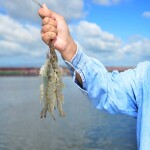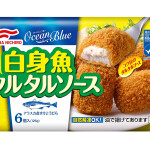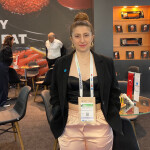A new U.K.-based foundation established by some of the world’s foremost experts on sturgeon has the goal of protecting the species from a rise in the fraudulent marketing of caviar.
Foundation for the Conservation of Sturgeon Secretary Alfred Cohen, an academic and sturgeon expert, said his organization intends to work with the Convention on International Trade in Endangered Species of Wild Fauna and Flora (CITES) and other regulatory bodies to “evaluate and improve upon existing laws, regulations, and policies” governing sturgeon.
“We aim to promote sturgeon conservation in the context of sustainable aquaculture and aim to promote transparency in the commercial sturgeon aquaculture industry,” Cohen said.
A surge in Chinese production has upended the global caviar trade in recent years, leading to greater volumes. The growing global interest in caviar has encouraged dishonesty among distributors, Cohen said. CITES, which was designed to protect sturgeon and other endangered species, has been “overwhelmed” by the rise of fraudulent marketing of caviar, according to Cohen.
“[E-commerce] has given rise to many fly-by-night brands that buy Chinese caviar and market it as Caspian Sea caviar,” Cohen told SeafoodSource. “We are a group of scientists looking to zoom in on the commercial trade with an intention to uphold CITES laws. The commercial trade in caviar is non-transparent and opaque, with most sellers deceiving their customers.”
According to Cohen, many caviar marketing firms abuse the system because it allows them to “market your caviar as whatever you want it to be – beluga, imperial, Iranian, Caspian Sea, Russian – whatever name you want to give it on the front of the tin, go ahead and give it, as long as your CITES labels at the back of the tin are correct!”
There already exist numerous organizations for sturgeon research. The primary weak link – which his organization will focus on – remains the wide-scale fraud involved in the commercial sturgeon stock – “from sturgeon meat all the way to caviar,” said Cohen, who spent most of his career at the University of California at Santa Barbara researching sturgeon populations and species across the world.
“[Mislabeling] takes place because even elite consumers are unaware of the extent of deception in the caviar industry, nor are they even aware of the CITES label on the back,” Cohen said. “Many consumers are being duped into buying caviar they think is from the traditional Caspian Sea producers Russian and Iran, but are actually buying caviar from China or Germany.”
High-end restaurants often use Chinese caviar to reduce costs and maximize profit, according to Cohen.
“Passing Chinese caviar as though it were of Caspian Sea origin is indeed a step beyond the pale. Yet even established firms that one would expect to not indulge such practices have in recent times succumbed to the lure of maximizing profits while providing inferior quality product,” he said.
Cohen a lack of access provided to CITES inspectors by Chinese caviar producers is an issue the foundation hopes to tackle.
“Chinese sturgeon farms do not allow our veterinarians and experts to enter their production facilities, and the overall lack of transparency in the nation's governance, particularly seafood is of great concern,” he said. “This is all the more important that sturgeon are a very fickle species, and it is difficult to farm them outside of their natural climates and habitats unless a great deal of growth [is achieved by] replacing nutritional components that have inappropriate nutritional value or are even harmful to the fish. Such farming practices can lead to harmful health consequences for humans.”
But Cohen said strong demand for caviar has prompted even established and heretofore respectable brands to engage in fraud.
“I've even come across caviar called 'British' caviar - because it contains British salt that was added [later] but, obviously, [it] was imported from China,” Cohen said. “I once attended the premises of a famous caviar brand in Paris and he was passing off his Israeli caviar as Iranian.”
That opinion is seconded by Cyrus Tabrizi, head of U.K.-based Caspian Monarque, who previously told SeafoodSource caviar from China and Spain is undercutting higher-quality product from the Caspian Sea with help from false marketing claims.
The Foundation for the Conservation of Sturgeon does not work with any products or brands in any capacity, Cohen said.
“This is part of our charter,” Cohen said. “We also won't work with anybody that has a stake in a private sturgeon enterprise.”
Photo courtesy of Konstantin Baidin/Shutterstock







